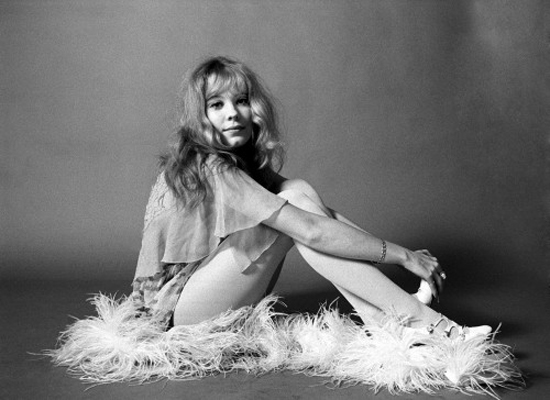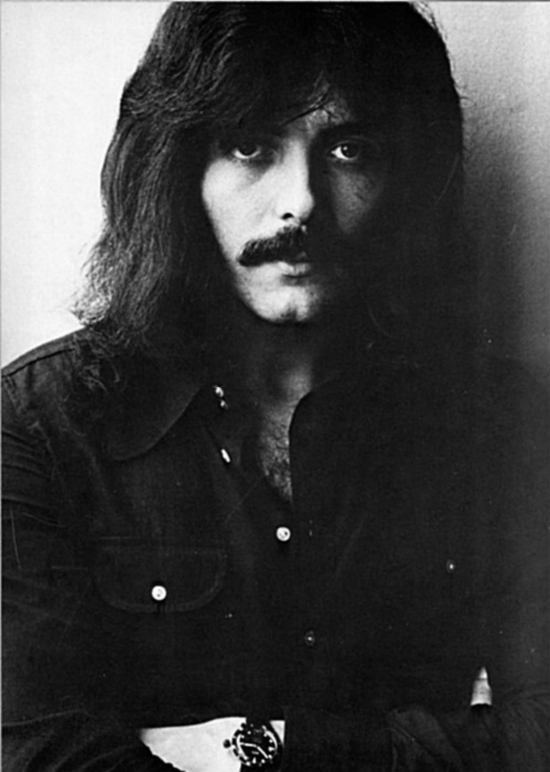By Nicole Breanne

The Stones, Bowie, Elvis, Hendrix, The Beatles, they all played on vinyl throughout my formative years. These guys are the soundtrack of my childhood. I was also intrigued by photographs from that era. Candid shots of the rock stars were my favorite. I would also notice the beautiful girls that were with them. I didn’t know who they were or what they did, but one in particular stood out. As I grew older and the internet came into play, I did my research, Pamela Des Barres was the name.
Pamela Des Barres – known as Miss Pamela, Queen of the Groupies – is world famous, mostly for the company she’s kept. But after reading her books, watching her documentaries, and being part of the music scene myself, I realized she was so much more. And as I got into journalism (I started as rock writer), my desire to meet and know Pamela grew and grew. Finally, I got the balls to shoot her an email and ask her for an interview…
Nicole Breanne: I grew up in a very musical household, not only did we have vinyl, but we had a lot of candid shots of rock stars. Those were my favorite. I always saw these really beautiful girls, you in particular, and I would think to myself, “I want to be those girls.” Now I look at groupies and I’m like, “Ugh, really?”
Pamela Des Barres PDB: You can’t use groupie in a negative way like you just did, I forbid it
NB: Well, that’s kind of my point, I don’t see them as groupies like I see you as one. I just didn’t know if I could call them star fuckers in your living room.
PDB: [laughs] I don’t call them that, I don’t call them anything. That wasn’t what we were about. I didn’t have sex for a long time, I wanted it to be special and I wanted to really love the person and have them really love me. But I did give oral sex – I really wanted to show my appreciation.
NB: Exactly! You weren’t there to just screw rock stars. You were these beautiful girls that were there for the band, you appreciated the music. I really feel like you guys did so much more.
PDB: I’m glad you feel that way because a lot of the bands felt that way. It wasn’t us just trying to be with them, they wanted us there. The super groupies got to be up on stage, we felt what they were feeling. It was thrilling beyond words to be up on stage when The Who was doing Tommy, The Stones with “Gimme Shelter.” I’ve been in some pretty amazing places.
NB: You’re so good about giving details, and not giving too much. You don’t go into who’s big and who’s not.
PDB: People ask that all the time! Who was the best? Who was the biggest? The funniest question I get asked, and I get asked it a lot, is, “What is jimmy pages dick like?” [laughs] So many people want to know that! It’s like wow, sorry, if you can’t find out for yourself, I’m not gonna go that far. They don’t ask about Jim Morrison or Jagger. I guess everyone saw Jagger, but Jimmy is the one they ask about.
NB: You really loved these guys, was it hard to watch them live that extreme lifestyle?
PDB: Yeah, I had to walk away sometimes. I was scared for them, sure I was. I saw them doing more and more, and the drugs got harder, it wasn’t just hash. I won’t lie, I did it too. I did it all. I never shot up though. I guess I’m lucky that I’m not an addictive person, I could walk away. But there were a few times when I had to leave because I couldn’t watch.
NB: Again, you really cared about these guys — but you weren’t the only girl that was around. When I watched the documentary based on your second book, Let’s Spend The Night Together: Confessions of Rock’s Greatest Groupies, I was struck by how there was no jealousy. Was there any of that?
PDB: No. We all really liked each other and we were careful not to step on each other’s toes. When the scene changed and some younger girls came in — that’s a different story. They just wanted us out, and there was name-calling and that kind of thing. Not all of them. There are a few good girls that I still keep in touch with. But the original girls weren’t like that. I loved doing that documentary because I got to spend double time with the girls. They’re still some of my best friends.
NB: What’s it like when you listen to the music of that time – do you still feel that same?
PDB: Some of it is way too emotional. It brings back way too many emotional things. I get very heady. I can’t even listen to “Stairway.” It brings back way too many memories. When it’s on the radio I can’t wait to turn it off, especially if I’m driving. I still listen to Graham Parsons. I was moved by him and his voice and his intense desire to share what he was doing with music. He was so dedicate and I’m obsessed with him still. There was a girl from France who was interviewing me because she’s doing a comic book series on the GTO’s and I asked if she knew him and she said no [so] I gave her CDs. I’m like that, because if someone really loves music, they need to know Graham. That’s what he was about, spreading music.
NB: In your second book you talk about your divorce, your son — it’s a very personal book. Did you just decide that you were going to go balls out with this and tell it all?
PDB: I did that with all my books. But my second book…it’s a different book, its my favorite one. It’s not as well read as the first one, the first one was a bestseller for a long time. I have fans, they’re reading them, but I wish more people knew about the sequel.
NB: You’re working on your fifth book now…
PDB: Yeah, my fifth book will be about my spiritual journey. My agent is having a hard time selling it because I am perceived as a “groupie” and a “groupie” shouldn’t have spirituality I guess. But we have interest from a smaller house.
NB: You teach a writing class – how did that start?
PDB: I would periodically go take a refresher creative writing course throughout my life. Moon Zappa said, “I’ve got this really cool writing teacher you may want to check it out.” So, I went and half-way through the class I thought – I should be teaching this, I could be teaching this! So I thought about it for a year, then I decided to take the plunge and just go for it. I advertised on MySpace, because that’s what was happening at the time. My first group met right here, about 10-12 girls, and they loved it. It’s just great groups of women who are all like-minded, and they have these amazing stories, so life long friendships are made. It’s worked out. I’ve been doing it for 12 years now. I’ve been traveling and now I teach all over and I’m doing my first European trip too.
NB: How do you feel about music today?
PDB: There’s a lot of things I like, nothing like the renaissance I lived though where every thing was great – The Stones, The Byrds, The Doors. I had to choose between The Stones and The Burrito’s. I remember Mercy invited me to Monterrey and I said, “I can’t go I can’t miss The Burrito Brothers!” Now that is one of the few things I regret. But I love Lucinda Williams. She’s the only singer that has moved me like that in decades. I liked Ryan Adams for a while. He went off the rails for a bit, but his new album is good. My boyfriend Mike Stinson is the greatest songwriter. I still go to see Willie Nelson, Merle Haggard, Dylan always, always. I set my alarm to make sure I get up to get the best seats. Paul McCartney. Mainly the bands I liked then I’ll go see now.
NB: Do you feel like it could happen again? That someone can come along and just revolutionize music?
PDB: It happened in rap, Eminem is a real big favorite of mine because he took that whole other part of music and created it for himself. That was amazing. He’s the last person that has moved me in that kind of way, in the way that I was like, “Wow, this guy is doing something.” Not since Kurt Cobain. Kurt Cobain was the dude.
***
I left Pamela’s house completely elated. She was more than I had ever dreamed she could be. She was poised and kind, and still insanely beautiful. Part of me hoped that meeting her would quell my thirst for that time. Maybe it wouldn’t be as great as I thought it was, maybe she wouldn’t be. But, alas, I’m left with even more of a longing – so much so, that I’ll be at her January writing class. If, like me, you can’t get enough of Pamela, be sure to sign up for one of her creative writing workshops. Alternatively, you can join one of her Rock Tours, during which she takes groups around Hollywood to her old haunts and reads excerpts from her book. It’s a pretty kick ass trip down memory lane!










